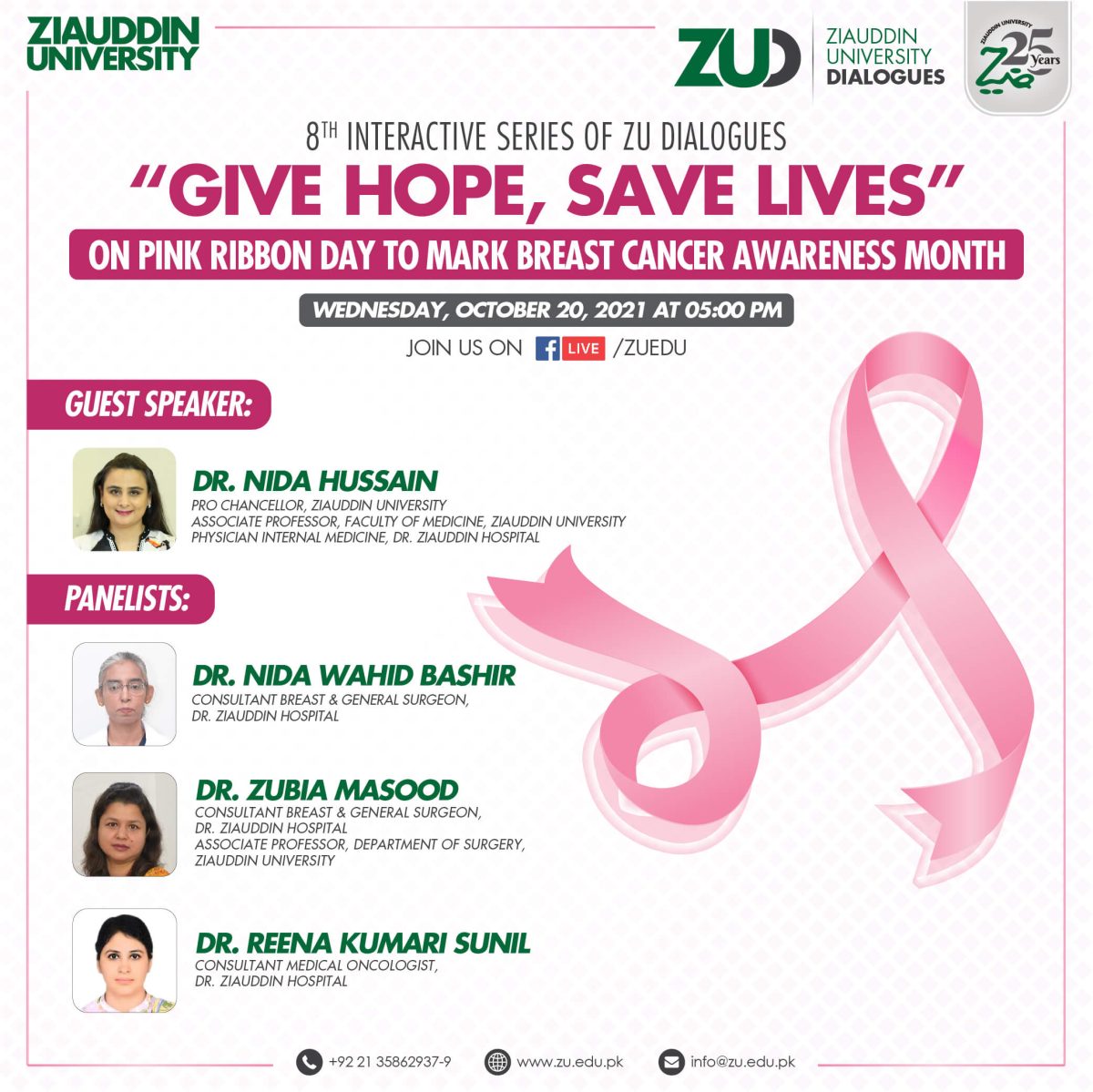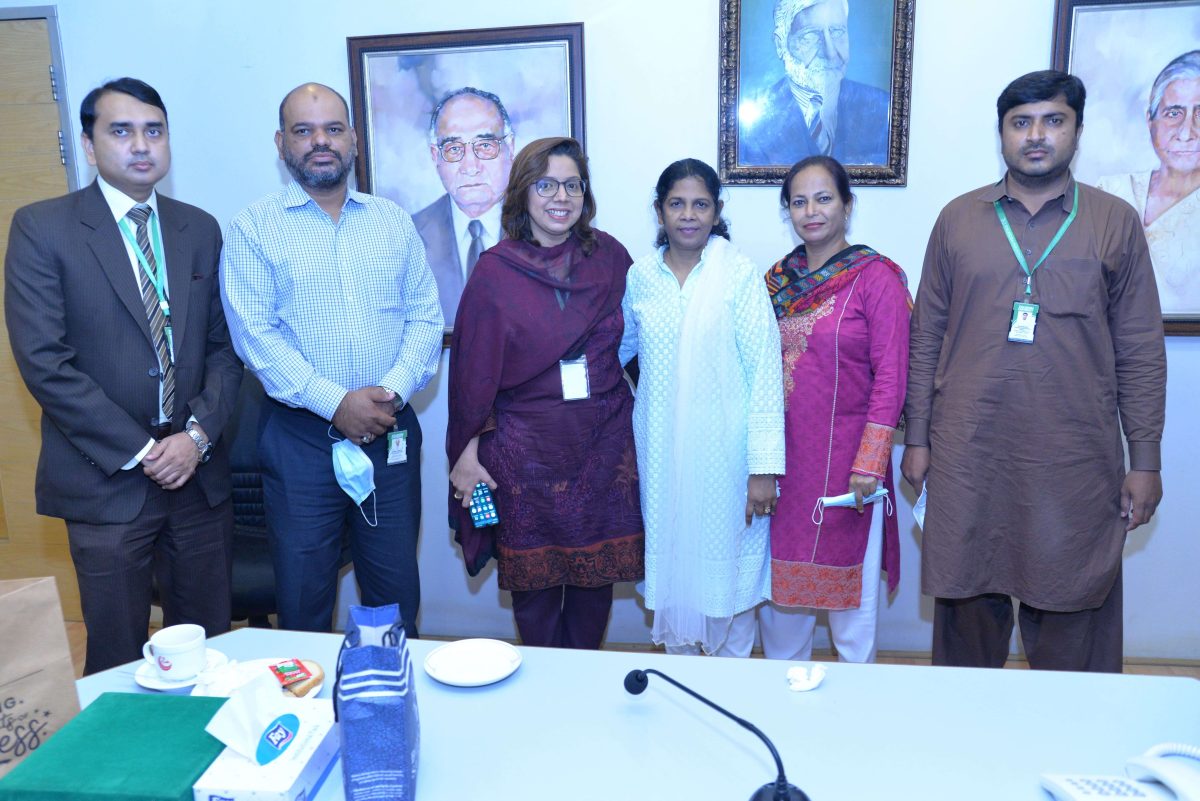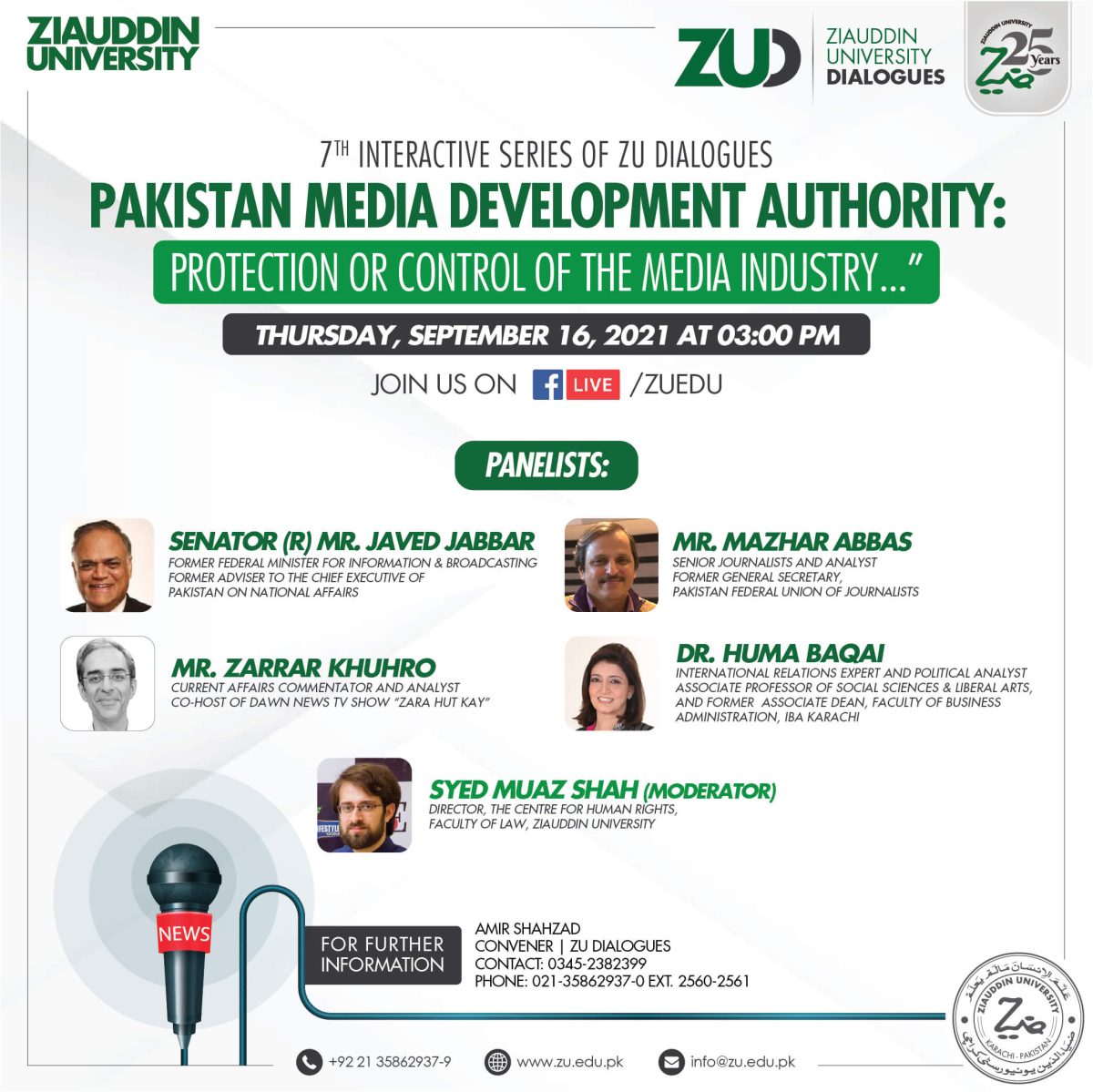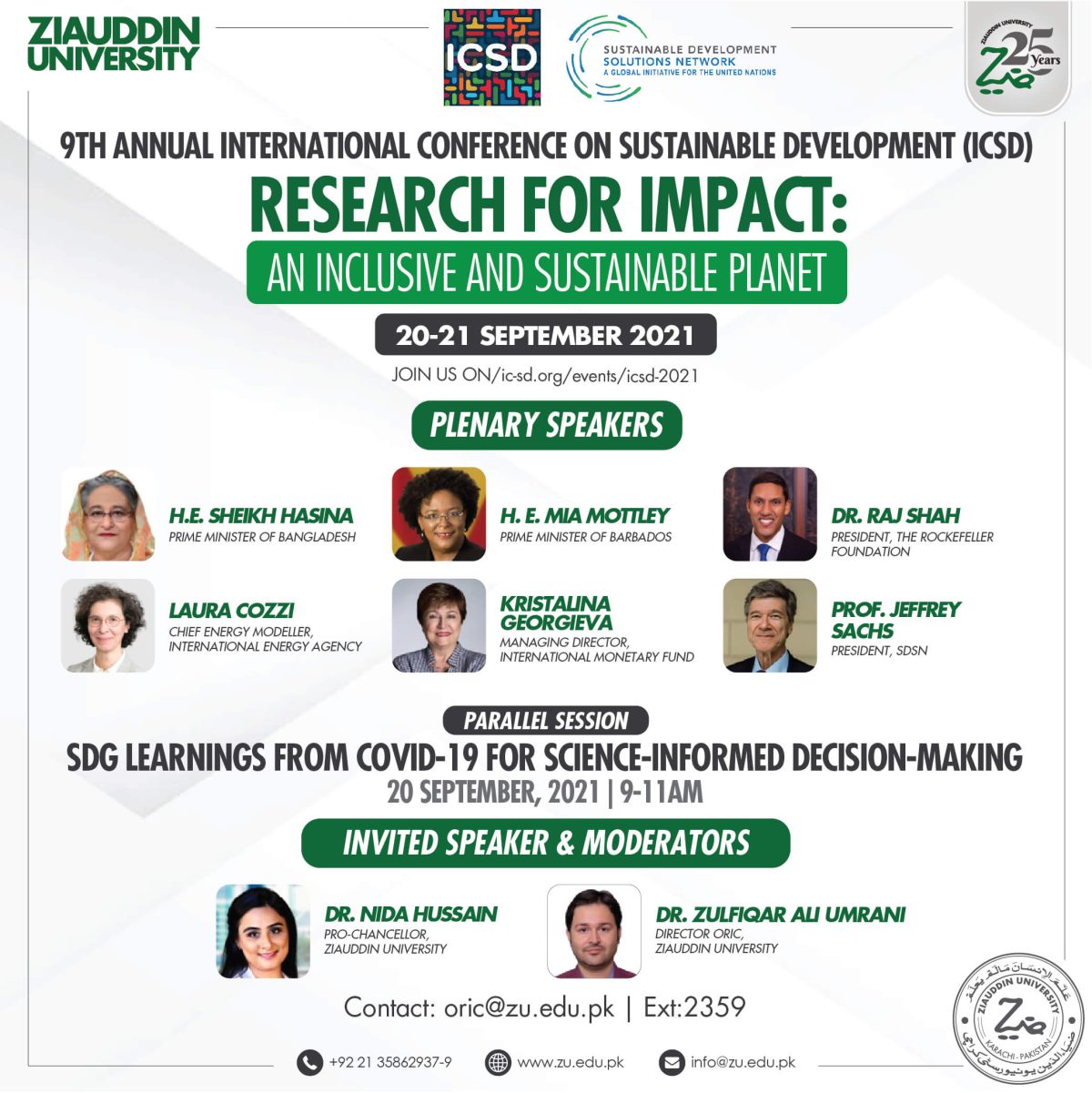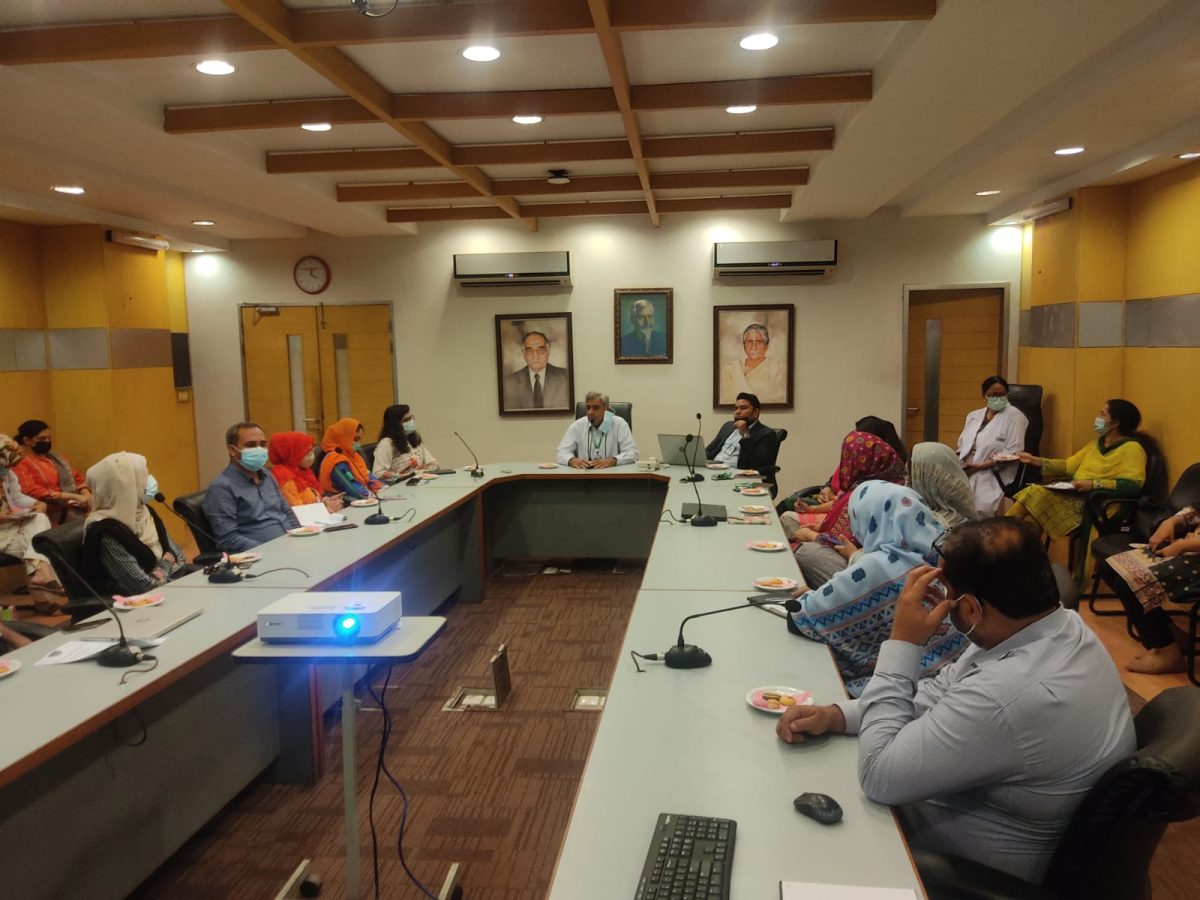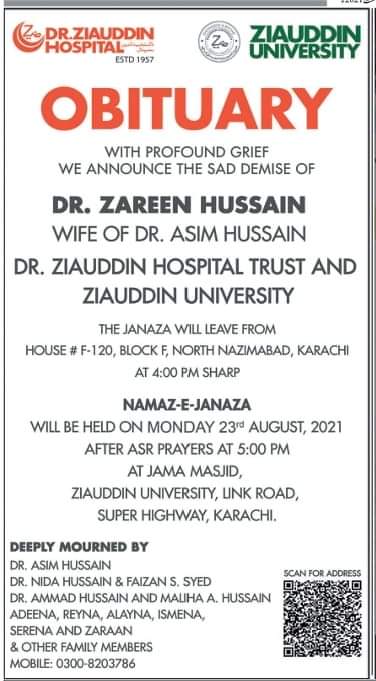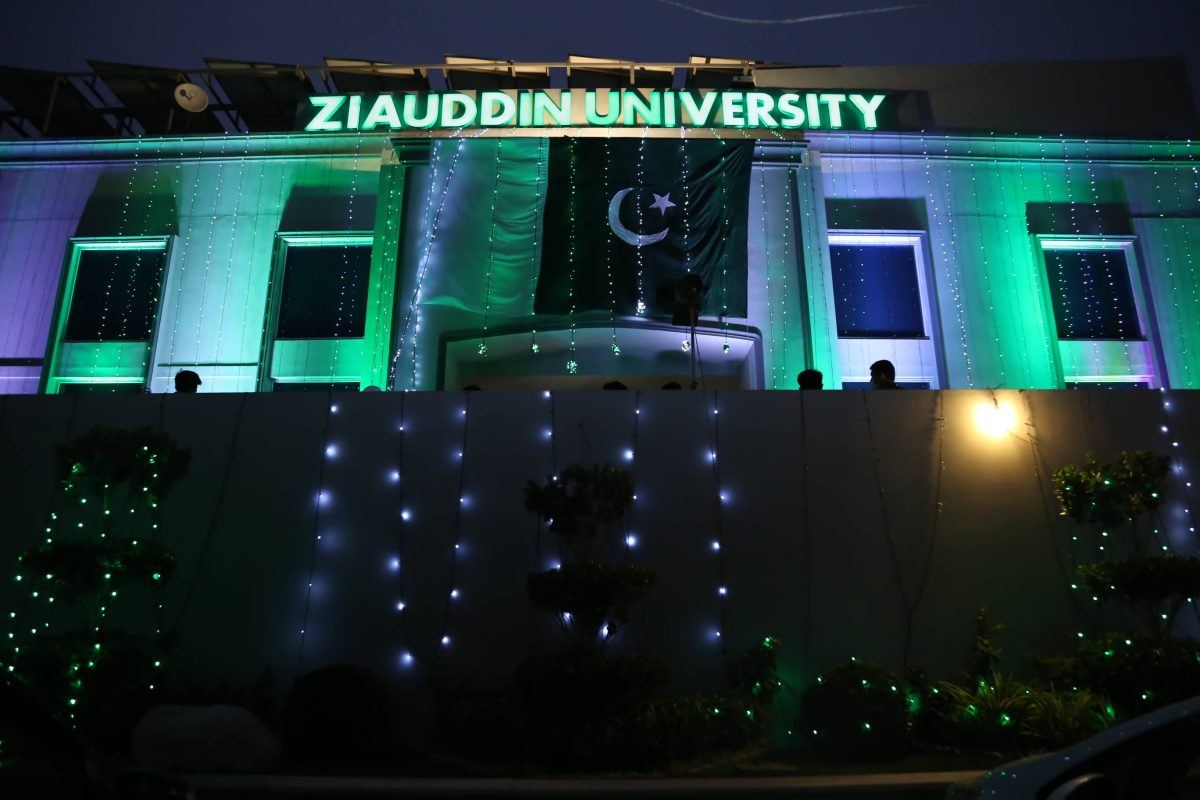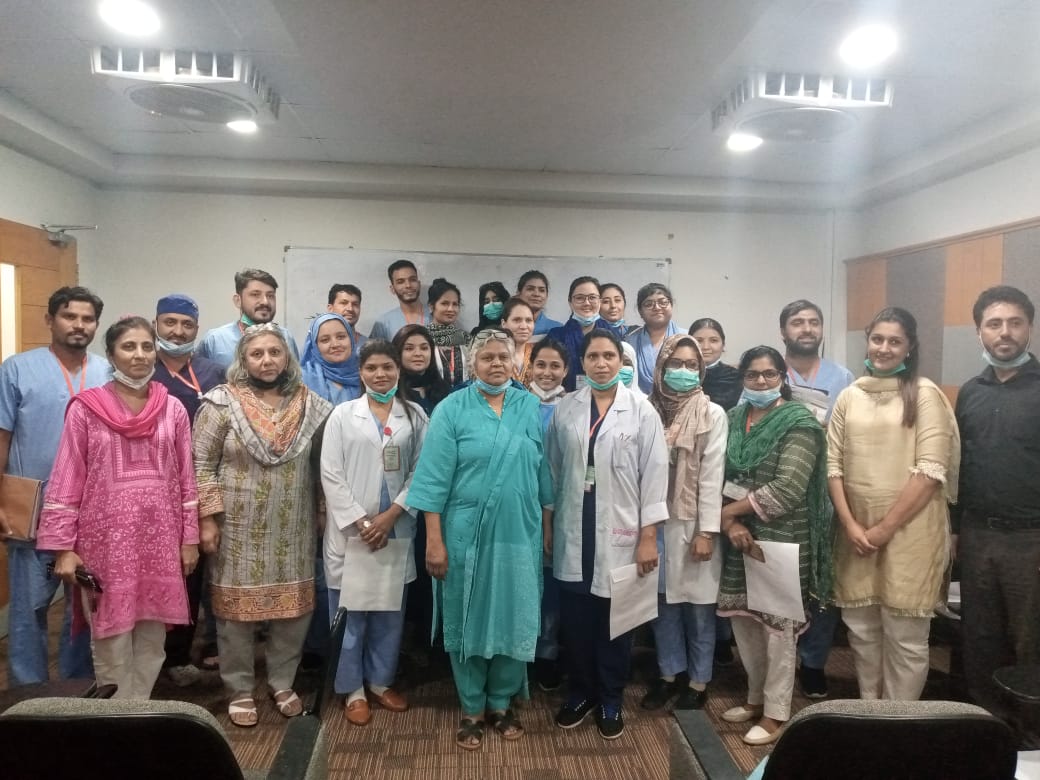[vc_row][vc_column][vc_column_text]
8th Interactive Series of ZU Dialogues
Ziauddin University presents 8th interactive series of “ZU Dialogues” on Pink Ribbon Day
“Give Hope, Save Lives”
Ziauddin University organized the 8th interactive series of “ZU DIALOGUES”, titled “Give Hope, Save Lives” on Pink Ribbon Day to mark Breast Cancer Awareness month.
Purpose of this activity was to spread words on breast cancer awareness and to inform young girls and women about the importance of attending breast cancer screenings and detecting breast cancer in early stages.
The ZU Dialogues was attended by Dr. Nida Hussain, Pro-Chancellor, Ziauddin University; Dr. Nida Wahid Bashir, Consultant Breast & General Surgeon, Dr. Ziauddin Hospital; Dr. Zubia Masood, Consultant Breast & General Surgeon, Dr. Ziauddin Hospital; and Dr. Reena Kumani Sunil, Consultant Medical Oncologist, Dr. Ziauddin Hospital.
“Breast cancer is curable if detected early, yet many women lose their lives to this. This is because they are scared to discuss it and don’t have the proper knowledge of how to deal with such health issues. They are unable to differentiate the morality part of it and the medically necessary part of it. This disease, if detected easily, has a very good survival rate. Lack of access to healthcare Is there even in our urban population”, said Dr. Nida Hussain, Pro-Chancellor of Ziauddin University.
“One of the reasons why it is a taboo is because the word breast is a taboo” explained Dr. Nida Husain as she discussed that although the incident and mortality rate is so high in Pakistan, yet everyone is scared to discuss it. Daughters, girls, if they feel a lump or anything in any of their private parts or any part of their body in fact, they are very hesitant to tell even their own parents, their own siblings”, she further added.
Dr. Nida Wahid Bashir, Consultant Breast & General Surgeon, Dr. Ziauddin Hospital while answering the question about how fast breast cancer can spread, she said that every woman should know how her breasts normally look and feel, so she can recognize any changes that may occur. Cancer is not caused by a single agent. It is the loss of ability to control a body to control the growth of a cell group. While knowing what to look for is important, a woman should still get her regular mammograms and clinical breast exams, as these tests can help detect breast cancer before she even has symptoms.
During the session she emphasized on the need to know about breast cancer in pregnant women, she said “pregnancy-associated breast cancer (PABC) is defined as breast cancer diagnosed during pregnancy or in the first postpartum year. It affects approximately 1 in 3000 pregnant women and is the second most common malignancy affecting pregnancy. The average age of women with PABC is 32 to 38 years. This is one of the most aggressive cancers that you can have – cancer that develops during pregnancy because due to hormonal influences, cancer behaves very aggressively”.
Dr. Reena Kumari Sunil, Consultant Medical Oncologists, Dr Ziauddin Hospital also shed light on pregnancy augmenting breast cancer and said that Incidents of pregnancy associated with breast cancer are increasing and might be because of delayed childbearing.
“Certain risk factors are lifestyle-related, including the use of birth control pills, hormone therapy after menopause, having children, drinking alcohol, being overweight or obese, and not being physically active. Having one or several risk factors does not mean a woman will develop breast cancer. “Only 5% of breast cancers are due to genetics. If you have family history, you should get genetic testing done as you are at a higher risk of getting cancer,” Dr. Reena further added.
“The main risk factors for breast cancer include being a woman and getting older (most breast cancers are found in women ages 40 and older). Uncontrollable factors that may increase risk include personal/family history, race, breast density and menstrual period history”, said Dr. Zubia Masood, Consultant Breast & General Surgeon, Dr. Ziauddin Hospital. She was talking about risk factors in breast cancer.
“The 40-cut mark is more for the screening purpose. Different countries run different screening programs based on the prevalence of the disease. However, you can get breast cancer in early ages too based on genetics and family history. So, you should get screened at an early age, a mammogram is not the only option, there are other ways to screen it”, highlighted Dr. Zubia Masood.
The dialogue was moderated by Maria Khan, the president of Welfare Aid, Ziauddin University.[/vc_column_text][vc_single_image image=”11239″ img_size=”full” alignment=”center”][/vc_column][/vc_row]


